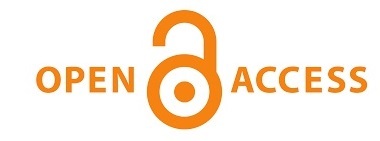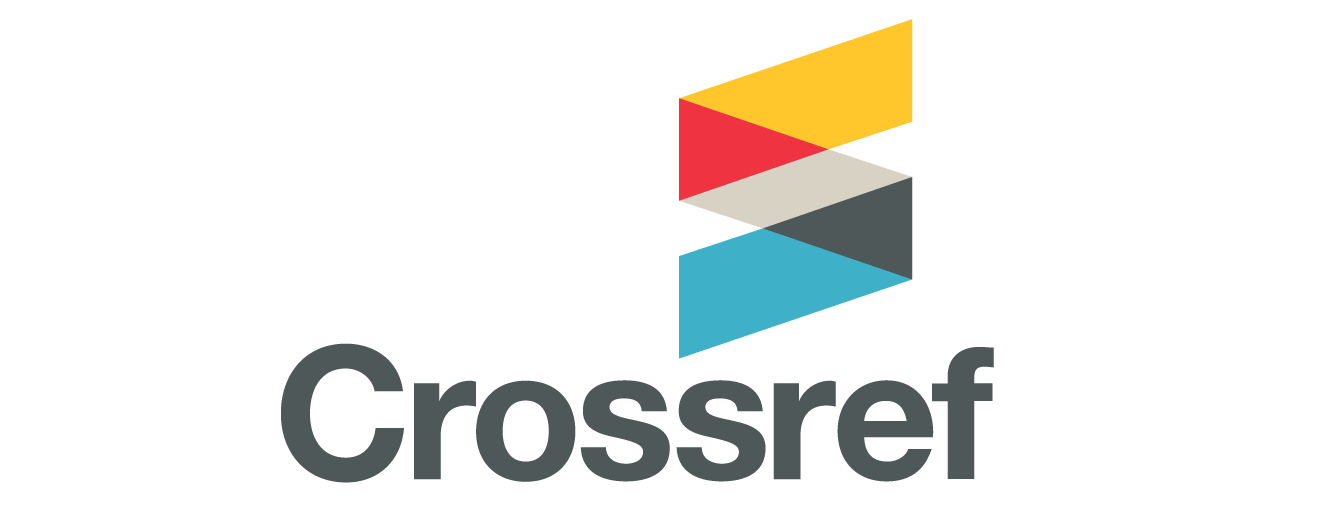Psychological Climate and Moral Stimulation in Research Teams of the National Academy of Sciences of Ukraine in the Eyes of Young Researchers
DOI:
https://doi.org/10.15407/sofs2021.04.057Keywords:
organization of research work, young researchers, respondents, National Academy of Sciences of Ukraine, research team, scientific workshop.ReferencesAbstract
The issues of training highly qualified and competitive specialists are of great importance for the scientific system of Ukraine. This explains the importance of conducting surveys of young scientists to determine their opinions on various aspects of scientific activity. The article presents the results of an electronic questionnaire survey of young researchers from scientific institutions of the National Academy of Sciences of Ukraine (NAS of Ukraine), which was carried out in February-April 2021 by a group of scientists from the Dobrov Institute for Scientific and Technological Potential and Science History Studies of the NAS of Ukraine. The purpose of this survey is to obtain respondent data pertaining to moral and psychological tools as a means to stimulate high performance of young researchers, set up various forms of researchers’ professional communications, improve the internal climate in research teams and conditions for the professional advancement of young researchers in the NAS of Ukraine. The questioning covered 352 young researchers from three sections, 14 divisions and 83 institutes of the NAS of Ukraine. The analysis of results obtained from the questioning of young researchers allows for the conclusion that the creative social and psychological climate that has beneficial effects for their professional advancement prevails in the majority of the NAS institutes; traditions of respectful attitudes to young researchers’ needs and their involvement in research and scien ti fic discussions are continued and preserved. This is confirmed by the data reported by the overwhelming majority of respondents. Nearly 80 % of respondents are fully or partially satisfied by the culture of discussion at scientific workshops. However, problems with workshop organization do exist in some NAS institutes, as, according to respondents, they can be held too rarely or not held at all; be convened to report outdated information or be turned into a business meeting, workshop leaders or participants can exhibit disrespectful attitudes to young researchers. Therefore, the survey shows that some leaders of research teams seem to diminish the significance of scientific workshops in the professional development of young researchers and fostering culture of scientific discussion, which requires a constructive feedback of the administration of the NAS of Ukraine.
References
Dobrov, G.M. (1971). Science management. Kyiv: Naukova dumka [in Ukrainian].
Malitsky, B.A., & Isakova, N. B. (2006). The future of academic science is being built today. Science and Science of Science, 4, 163—174 [in Ukrainian].
Popovych, O.S, & Kostrytsia, O.P. (2020). Aggravation of negative tendencies in the dynamics of R&D personnel in the NAS of Ukraine. Science and Science of Science, 1, 22—33. https://doi.org/10.15407/sofs2020.01.022 [in Ukrainian].
Bulkin, I.A. (2016). Evolution of the age structure of researchers in organizations of the National Academy of Sciences of Ukraine. Science and Science of Science, 4, 31—54 [in Russian].
Prodius, O.I, Zhuravel, A.I, & Sitor, M.O. (2013). Talent management as an integral part of the success of the organization. Economics: the realities of time, 1, 172—177 [in Ukrainian].
Pikalov, V.L. (2014). Problems of managing talented employees of economic entities. Academic review, 1, 116—121 [in Ukrainian].
Zakharchyn, G.M. (2013). Synthesis of innovative and traditional in modern concepts of enterprise personnel management. Lviv Polytechnic National University, 778, 212—218 [in Ukrainian].
Armstrong, M. (2010). Human Resource Management Practice. Trans. from English. St. Petersburg: Piter [in Russian].
Sadova, K.V. (2016). Talent management as a modern approach to improving the efficiency of the company. Bulletin of V.N. Tatishchev Volga University, 3, 162—169 [in Russian].
Hilton, D. (2013). Hiring and Retaining Top Talent. Credit Union Executive Journal, 40 (5), 12—16.
Popovych, O.S., & Kostrytsia, O.P. (2017). Restoring the scientific potential of Ukrainian science: necessity and real prospects. Science and innovation, 13 (4) 5—13. https://doi.org/10.15407/scin13.03.005 [in Ukrainian].
Popovych, O.S. (2019). Why we are so calm?! Granite of Science. URL: https://un-sci.com/ru/2019/11/24/chomu-mi-taki-spokijni/ (last accessed 21.05.2021) [in Ukrainian].
Onyshchenko, O.S., Malitsky, B.A., Onoprienko, V.I., Kavunenko, L.P. et al. (2007). National Academy of Sciences of Ukraine: problems of development and entry into the European scientific space. Kyiv: Vernadsky National Library of Ukraine [in Ukrainian].
Kavunenko, L.F., Goncharova, T.V., & Zinchenko, N.S. (2014). International scientific and technological cooperation Ukraine — EU: results of sociological research. Science and Science of Science, 3, 65—73 [in Russian].
Vashulenko, O.S. (2014). Young researchers in the National Academy of Sciences of Ukraine: performance and prospects. Science and Science of Science, 2, 34—41.
Zhabin, S.O., Kazmina, O.P., Vashulenko, O.S., & Sosnov, O.S. (2016). An analysis of the data from a sociological study of young researchers of the National Academy of Sciences of Ukraine in 2015. Science and Science of Science, 2, 62—77.
Zhabin, S.O. Vasiliev, G.S., Kazmina, O.P., Sosnov, O.S. & Biletskiy, O.O. (2017). Professional and social problems of young researchers and lecturers based on the opinion poll results (the case study of NTUU Igor Sikorsky Kyiv Polytechnic Institute). Science and Innovations, 13 (5), 19—37. https://doi.org/10.15407/scin13.05.019
Young, M. (1991). The Rise of the Meritocracy. Trans. from English. Moscow: Progress [in Russian].
Bell, D. (2004). The Coming of the Post-Industrial Society: A Venture in Social Forecasting. Trans. from English. Moscow: Academia [in Russian].
Simonton, D.K. (2020). The Genius Checklist: Nine Paradoxical Tips on How You Can Become a Creative Genius. Trans. from English. Moscow: MIF [in Russian].
Popovych, O.S., Zhabin, S.O., & Klimenkova, V.I. (2021). Youth in the National Academy of Sciences of Ukraine about the reform of the Academy. Science and Science of Science, 2, 64—76. https://doi.org/10.15407/sofs2021.02.064 [in Ukrainian].
Popovych, O.S., Zhabin, S.O., & Klimenkova, V.I. Ethics of science: a factor in its preservation and development. (2021). Science and Science of Science, 3, 39—49. https://doi.org/10.15407/sofs2021.03.039 [in Ukrainian].
Poincaré, A. (1983). Valeur de la science. Trans. from French. Moscow: Nedra.
Besarab, M.Y. (1971). Pages of Landau’s life. Moscow: Moskovskiy rabochiy. URL: http://www.ega-math.narod.ru/Landau/Dau1971.htm [in Russian].
Kapitsa, P. L. (1997). Experiment. Theory. Practice. Moscow: Nauka [in Russian].
Kavunenko, L.F., & Velenteychik, T.N. (2020). Predetermination and unexpectedness. Scientific assays on citation leaders in the field of science and technology history. Moscow: YUNITIDANA [in Russian].
Kavunenko, L.F. (2019). Dobrov in recollections of disciples and colleagues. Science and Science of Science, 2(104), 31—42. https://doi.org/10.15407/sofs2019.02.031 [in Russian].
Popovych, O.S, & Klimenkova, V.I. (2020). The academic inbreeding: a problem traditionally ignored in setting up the personnel policy the Ukrainian research system. Science and Science of Science, 2 (108), 54—63. https://doi.org/10.15407/sofs2020.02.054 [in Ukrainian].
Downloads
Published
How to Cite
Issue
Section
License
Copyright (c) 2021 Science and Science of Science

This work is licensed under a Creative Commons Attribution-NonCommercial-NoDerivatives 4.0 International License.





